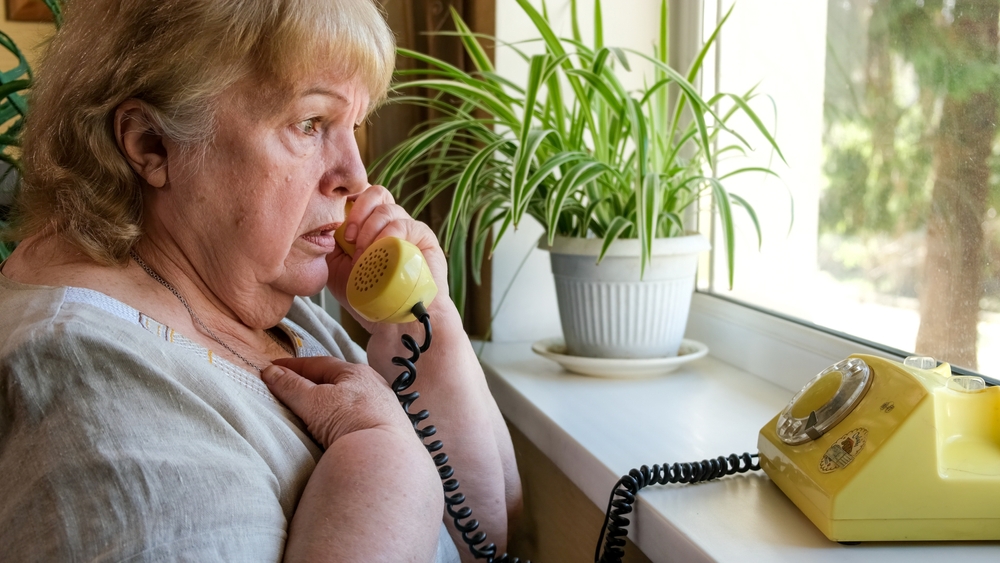
These are the most common scams you should watch out for!
Scammers are still incredibly difficult to stop, and every year more and more people end up being their victims. But do you know why this keeps happening? Scammers are hard to stop because they keep raising their game and take advantage of all the available innovations.
Authorities try to keep up with the scammers and come up with various tools, but in the end, it is just a cat-and-mouse game. So, the only thing that remains is to try to be updated about the methods scammers use and be alert all the time.
Be aware that criminals are not only benefiting from technological advancements such as artificial intelligence (AI), but they are also becoming increasingly skilled at psychological manipulation.
They are better and better at impersonating legitimate institutions, such as websites and messages that are identical to those of, let’s say, legitimate healthcare providers, businesses, and banks.
So, get ready to discover the most common scams and learn how to protect yourself against them.

1. Voiceprint scams
Have you ever heard of voice deepfakes? This is when thieves capture a recording of your voice and can use a software program to generate a fake version of it that they can later use to impersonate you. Kind of scary, right? We believe so, and unfortunately, this is one of the most common scams of the year.
The voice cloning technology allows criminals to copy your voice, and they can later use it for various fraudulent purposes, including accessing financial accounts, applying for licenses, and more.
For example, there was one case when a major bank received a call with the voice of a Florida investor. The voice requested to move the money of the victim into another account. Hopefully, the bank spotted the scam before anything bad happened.
Since this is a common scam, it would be a good idea to know how to protect yourself. The first rule would be to never answer phone numbers that you don’t know. This is the safest approach. There are some experts who say that sometimes scammers can use a phone number you have in your contact list in case the phone has been stolen or the SIM card was cloned.
2. Multistage grandparent scam
Ok, maybe you know the classic grandparent scam. When someone calls and pretends to be a grandchild who needs money for bail? If this sounds familiar, well, there is a newer and more complex version of it, which is now one of the most common scams out there.
Back then, this still used to be one of the common scams, but it was a thing for small-time crooks who were seeking quick cash. Now, thieves set up entire call centers, and they usually work with young people paid only a few bucks for every senior they can connect with.
After they tricked you into thinking that they are your grandkid and were involved in a car accident, they will send you a case number that you are supposed to use later when you need to contact the defense attorney or the local prosecutor. Sometimes the scammers can even send a “courier” to your home to personally take the money.
So, how to stay safe? If you ever get a phone call from an unfamiliar number and they claim they are a family member who got in trouble, the first and most important thing you can do is not to panic.
After the phone call ends, don’t send the money, and don’t agree to anything related to money. Take a moment and call or text the person at their usual phone number and check if they are actually in trouble.
Even if the scammers tell you to keep the situation a secret, you should make sure you contact the real person and see if anything happened to them. Confirmation is the best way to protect yourself from one of the most common scams.
3. Check cooking
Not a long time ago, check-washing was a real thing. Thieves stole paper checks from mailboxes and carriers, and then these checks went through a process of chemically altering. Everything was erased but the signature. In this way, the criminals were able to fill in with any name and amount of money they wished.
But this is now a thing of the past. It’s still one of the most common scams out there, but they are using a new, more sophisticated tactic called check cooking. This is an insidious method that is less messy and more sneaky.
While using this method, thieves manage to take a digital picture of a stolen check and then use various photo modification software to alter it. These fake copies can look incredibly real—watermarks and all! Then they can be printed or directly deposited into a bank account using a mobile app.
If you want to stay safe and protect yourself from some of the most common scams, such as this one, it’s a good idea to choose safer payment options. We know that checks might be comfortable for some, but a credit card is so much safer.
In case you still opt for paper checks, keep in mind that scammers still need to steal a physical copy. So, you can start working from here. Instead of leaving the check in a mailbox, take it directly to the nearest post office. Also, keep an eye on your checking account and watch for suspicious transactions.

4. Delayed-action sweepstakes
Did someone ever call you and tell you that you are the winner of a fabulous prize? This is an old-school scam, and even today it still remains one of the most common scams out there.
Generally, those who used this method requested you to pay some taxes or fees before you were able to collect your “prize,” but now they’ve come up with a new variation. They will convince you to share sensitive personal information such as banking details and Social Security numbers. The thieves will claim they need this info to help you collect your prize.
But there is no prize there, and this is just another form of identity theft. Now, they can use this private financial information and play a long game. Maybe they will start writing small checks that can go unnoticed by the victim, and later, they can use the account to get credit cards.
If someone calls you and tells you something that sounds too good to be true, it means it’s most probably not true, and you should say away. Hang up as soon as possible, and make sure you don’t provide any personal information.
As much as we love technology and it helps us in our day-to-day lives, it can also create a fertile ground for scammers to thrive. This is one of the drawbacks, especially now when it becomes harder and harder to stay protected.
While it’s impossible to eliminate the threat of scams entirely, we tried to show you what the most common scams are and what the best strategies are to follow so you don’t fall into the trap. Stay safe and alert!
If you want to be more prepared than ever and never get scammed, this book might be for you: Scam Me If You Can: Simple Strategies to Outsmart Today’s Rip-off Artists
You should also read: Avoiding Election Scams: 5 Important Things Seniors Should Know










I share your level of enthusiasm for the work you’ve produced. The sketch you’ve displayed is refined, and the material you’ve authored is impressive. Nevertheless, you seem anxious about the prospect of heading in a direction that could cause unease. I agree that you’ll be able to address this concern in a timely manner.